.jpg)
-ooOoo-
Next Meeting:
Monday 22 September
-oOo-
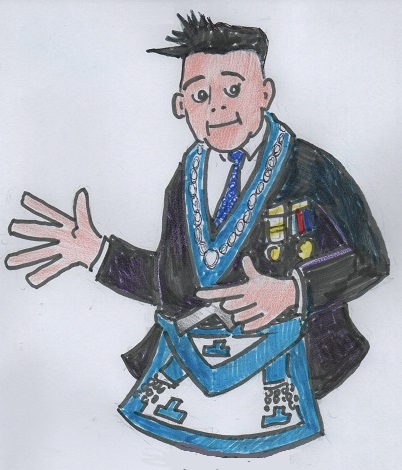
BE THERE
ON THE SQUARE
See the Charity Page for MCF info
![]()
.jpg)
-ooOoo-
Next Meeting:
Monday 22 September
-oOo-

BE THERE
ON THE SQUARE
See the Charity Page for MCF info
![]()
Andrew Peach
Then and Now
On achieving fifty years as a Freemason, W Bro Andrew V Peach PPJGW reflects on the changes he has experienced over the past half century.
Yesterday and Today - a Personal View
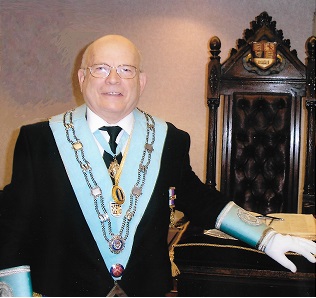 Several years ago, I attended a lecture at Tapton Masonic Hall in Sheffield. It was given by the historian, Prof. Andrew Prescott, who, at that time, was the Director of the Centre for Masonic Research at the University of Sheffield. I don’t recall the title of the lecture, but I remember him saying that historians placed a great deal of importance on the minutes of Masonic meetings because they reflected the social conditions of the time.
Several years ago, I attended a lecture at Tapton Masonic Hall in Sheffield. It was given by the historian, Prof. Andrew Prescott, who, at that time, was the Director of the Centre for Masonic Research at the University of Sheffield. I don’t recall the title of the lecture, but I remember him saying that historians placed a great deal of importance on the minutes of Masonic meetings because they reflected the social conditions of the time.
Having completed fifty years in the Craft, it has set me thinking about the social changes I have seen and how they have influenced my experience of English Freemasonry.
In the ‘60s and early ‘70s, single income families were the norm: the man worked whilst his wife looked after the home; eating out was a treat only undertaken on special occasions; there were few restaurants and the only takeaways were fish and chip shops; holidays were taken in the UK; and success or otherwise in the eleven-plus exam determined the future of the children. Communications were very limited: for some, the only way of communicating other than by letter was the phone box at the end of the street.
There was a clear distinction between manual workers and the professional class: manual workers - particularly in Hull - travelled to work by bicycle; were hourly paid; clocked on when they arrived; and left en masse when the factory whistle blew. The professional class (doctors, solicitors, government officials, and business owners) had motor cars; were paid a salary; had control over the hours they worked; and were much better off than manual workers.
In those days, there were no leisure centres or gymnasiums; swimming pools were called ‘Baths’ and had a smell of the Victorians’ desire for cleanliness; Working Men’s Clubs and public houses formed the backbone of leisure activities for manual workers; and small local cinemas were well attended by their families. On the other hand: professional people would play golf in the day; bridge in the evening; and would invite friends to their homes for a meal; but they had no equivalent of the Working Men’s Club. However, Freemasonry, with the high moral standards it espoused, and the social contacts it gave rise to, formed an attractive alternative.
At the time of my Initiation in 1973, the Andrew Marvell Lodge met in Park Street and had had an average of three Initiations per year since its consecration in 1937. Post-war, the common bonds engendered amongst men in uniform were still strong and undoubtedly aided recruitment. By the early 70s, Lodge membership had peaked at almost one hundred: members included council officials, teachers, medical practitioners, business owners, fish merchants, farmers, transport executives and, perhaps surprisingly, three owners of department stores - and there was a waiting list for Initiation. Members tended to keep their membership secret from all but family and trusted friends, and only proposed men well known to them and whom they were confident would be suitable candidates for the Craft.
It was regarded as an honour to be asked by the Master-Elect to be one of his Officers - a request which was rarely declined. Ritual was of the highest order and was expected to be memorised. Apart from the Lecture Master, who gave an occasional prompt, books were not seen anywhere in the Lodge Room during a ceremony.
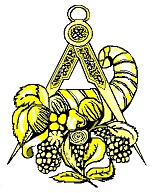 After the ceremony and before the meal, members retreated to the bar - much as they do today. However, Past Masters went to the Past Masters’ room where the Master would provide a bottle of whisky, some mixers and some peanuts or similar snacks. The dining room would be laid out with up to five legs to accommodate the relatively large number of diners. Waitresses were used at Installations but, for regular meetings, the six or so younger brethren, appointed as Stewards, waited on and afterwards retired to the Stewards’ room to dine whilst toasts and speeches were being delivered - the noise of laughter from the Stewards could frequently be heard in the dining room. The fish merchants in the Lodge would supply fresh fish so diners got an extra course between the starter and the main course; in addition, the Master would bring wine for the tables. At the Christmas Lodge, the Christmas pudding, aflame with firing brandy, would be paraded round the dining room to a hearty chorus of ‘Good King Wenceslas’.
After the ceremony and before the meal, members retreated to the bar - much as they do today. However, Past Masters went to the Past Masters’ room where the Master would provide a bottle of whisky, some mixers and some peanuts or similar snacks. The dining room would be laid out with up to five legs to accommodate the relatively large number of diners. Waitresses were used at Installations but, for regular meetings, the six or so younger brethren, appointed as Stewards, waited on and afterwards retired to the Stewards’ room to dine whilst toasts and speeches were being delivered - the noise of laughter from the Stewards could frequently be heard in the dining room. The fish merchants in the Lodge would supply fresh fish so diners got an extra course between the starter and the main course; in addition, the Master would bring wine for the tables. At the Christmas Lodge, the Christmas pudding, aflame with firing brandy, would be paraded round the dining room to a hearty chorus of ‘Good King Wenceslas’.
The most striking thing to anyone from the ‘70s era visiting the Lodge today would be the significantly reduced attendance. They could not be blamed for thinking that there had been a third world war that had taken away another generation of men! They would also be surprised by the frequent use of ritual books during the ceremonies.
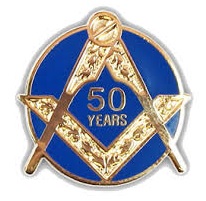 On the other hand, anyone looking back 50 years would wonder how people managed without computers, the internet, emails, mobile phones, credit cards, Google, Amazon, Netflix, WhatsApp, Zoom, takeaways, holidays abroad, a local gym, and working from home – the list goes on.
On the other hand, anyone looking back 50 years would wonder how people managed without computers, the internet, emails, mobile phones, credit cards, Google, Amazon, Netflix, WhatsApp, Zoom, takeaways, holidays abroad, a local gym, and working from home – the list goes on.
So, where does this leave the Andrew Marvell Lodge?
First, it continues to expect all its members to honour the promises they make in the various ceremonies - which include keeping the traditional secrets of Freemasonry. It also promotes a strong sense of bonding and brotherhood amongst its members who continue to observe the guiding principles of the Order which are: Integrity, Friendship, Respect and Charity.
Secondly, the Lodge is not looking over its shoulder at the past. It is making full use of many aspects of Freemasonry today: members are no longer coy or reticent about making their membership known; they openly discuss what it entails to be a Freemason and encourage questions from all sections of society; the Lodge website is used to publicise activities and includes names and photographs of members; guests are invited to join members on social and other important occasions, for example, when donations are awarded to representatives of local charities; and every opportunity is taken to invite guests into the Lodge Room where they are able to ask questions about the furniture and decorations.
All the above, combined with the hard work and dedication of a cohort of experienced brethren, has led to a steady increase in new members who take full advantage of the underlying good humour and comradeship that has always prevailed in the Andrew Marvell Lodge.
[The photograph of Andrew Peach as WM was taken at Imperial College Lodge 4536, at the Master's Chair. This fine piece of furniture was used by King Edward VII when he presented the College with its Charter in 1907. Andrew was WM there in 2008-2009.]
AVP – February 2023.
Christopher Lefevre
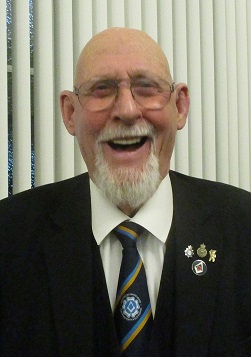 Born in Leeds in 1938 when King George VI was on the throne, Chris came into the world at a time when Hitler was becoming powerful and World War Two was imminent. The world was uneasy, preparing for trouble.
Born in Leeds in 1938 when King George VI was on the throne, Chris came into the world at a time when Hitler was becoming powerful and World War Two was imminent. The world was uneasy, preparing for trouble.
There’s little doubt world events influenced his childhood, but despite rationing and the difficulties with education in the war years, Chris flourished physically and mentally and was ambitious to develop his skills.
His father was an aircraft engine mechanic and the family consequently moved fairly frequently, so Chris was educated for the most part in Rotherham, where he attended Technical College after leaving Secondary School.
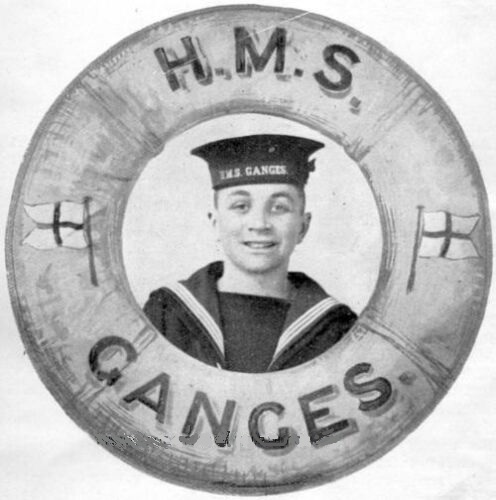 The name “Lefevre” dates back to medieval France, meaning a Smith or Ironworker, and this tall youth determined to become a “man of iron”. To this end, in 1953 he joined the Royal Navy as a Boy Seaman 2nd Class, and learned to salute the Queen the Navy Way. His education continued on HMS Ganges as Deputy Button Boy at the top of the 154 foot high mast, the pinnacle of an impressive pyramidic display of seventy lads; and also he excelled in swimming, rugby and hocky and became familiar with sailing, particularly in sailing and power boats.
The name “Lefevre” dates back to medieval France, meaning a Smith or Ironworker, and this tall youth determined to become a “man of iron”. To this end, in 1953 he joined the Royal Navy as a Boy Seaman 2nd Class, and learned to salute the Queen the Navy Way. His education continued on HMS Ganges as Deputy Button Boy at the top of the 154 foot high mast, the pinnacle of an impressive pyramidic display of seventy lads; and also he excelled in swimming, rugby and hocky and became familiar with sailing, particularly in sailing and power boats.
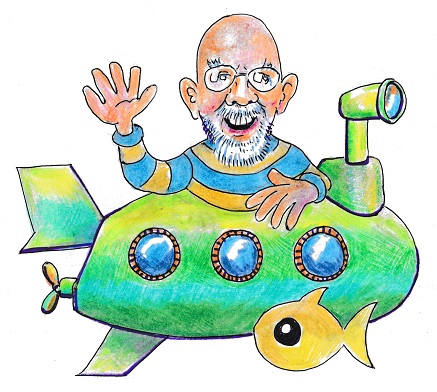 As a young man he served on Destroyers, Deep Sea Tugs and on an Aircraft Carrier (as a radar operator) before moving to pre-nuclear submarines which he enjoyed despite the difficult conditions exacerbated by his tall frame. 1956 saw him as an Able Seaman in Suez in the complex lifting of the block ships from the bottom of the canal and towing them to Cyprus. There was much shallow water diving involved in this difficult and tedious operation. During this time Chris was shot at from on shore, but fortunately for us, the sniper missed.
As a young man he served on Destroyers, Deep Sea Tugs and on an Aircraft Carrier (as a radar operator) before moving to pre-nuclear submarines which he enjoyed despite the difficult conditions exacerbated by his tall frame. 1956 saw him as an Able Seaman in Suez in the complex lifting of the block ships from the bottom of the canal and towing them to Cyprus. There was much shallow water diving involved in this difficult and tedious operation. During this time Chris was shot at from on shore, but fortunately for us, the sniper missed.
After leaving the Navy, Chris has spent a lifetime in logistics (Road Transport), as an HGV Driver (UK & International), Haulier, Transport Manager and Consultant. He has travelled all over Europe.
Chris married Barbara in his early thirties; gaining three step-children and fathering Stephen in 1970 and Caroline in 1972. At the time of writing, he has eight grandchildren: and the son of his youngest stepson has just been initiated into de la Pole Lodge 1605.
Sadly, Barbara passed away in 2006 after thirty-six years of happy marriage.
Chris joined FM in 2010 and has gone through the ranks, achieving Active Provincial honours. He is a member of the Chapter and other Orders and is well known for his prodigious appetite at the festive board.
Chris met Pauline in 2012 and married her in 2018, but cancer again intervened, and Pauline died in December 2021.
 Since then, Chris has thrown himself wholeheartedly into Freemasonry and other activities, including charity work with Avocet Trust, Longhill Community Centre, Police Service Volunteer and for a Hedgehog Hospital (possibly a guilt reaction to all those heavy trucks over the years.)
Since then, Chris has thrown himself wholeheartedly into Freemasonry and other activities, including charity work with Avocet Trust, Longhill Community Centre, Police Service Volunteer and for a Hedgehog Hospital (possibly a guilt reaction to all those heavy trucks over the years.)
For someone who has lived in the reign of three British monarchs Christopher Bond Lefevre is surprisingly active and enthusiastic. As Worshipful Master of the Andrew Marvell Lodge, he pledges himself to a year of moving ever forward. In his own words: “I’d like to keep the momentum going.”
--ooOoo--
Malcolm Forbes
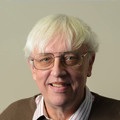 Past Master, Malcolm Forbes, (who took the WM's Chair during the Covid years) was born in Kidderminster, but as his father was in the military, spent the first six years of his life in Singapore, followed by a grammar school education in Streatham, London. This led to studying law in Stoke-on-Trent. Malcolm graduated in 1973 and studied for the Bar at the Council of Legal Education and thereafter lectured in Law at Hull College of Commerce, Hull College of Higher Education, Humberside Polytechnic and later at the University of Lincoln. “Towards the latter part of my teaching career I specialised in criminal law, the law of evidence and company law,” he explained, “but throughout thirty-four years in the classroom
Past Master, Malcolm Forbes, (who took the WM's Chair during the Covid years) was born in Kidderminster, but as his father was in the military, spent the first six years of his life in Singapore, followed by a grammar school education in Streatham, London. This led to studying law in Stoke-on-Trent. Malcolm graduated in 1973 and studied for the Bar at the Council of Legal Education and thereafter lectured in Law at Hull College of Commerce, Hull College of Higher Education, Humberside Polytechnic and later at the University of Lincoln. “Towards the latter part of my teaching career I specialised in criminal law, the law of evidence and company law,” he explained, “but throughout thirty-four years in the classroom 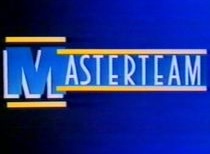 I taught most areas of English law, including European Union law.”
I taught most areas of English law, including European Union law.”
Malcolm appeared on TV in the final of the BBC1 quiz show Masterteam specialising in Current Affairs and has also featured in the TV shows Fifteen to One, Quiz Night and Time Please.
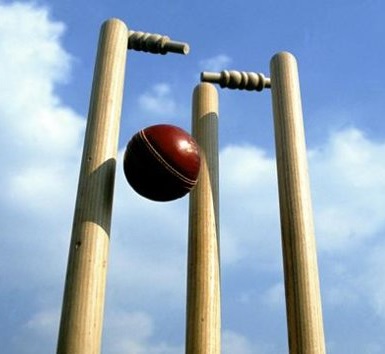 On retiring, Malcolm has taken up cricket umpiring, and has umpired in the United Arab Emirates every year since 2014, including Test Match grounds in Abu Dhabi and Sharjah. He is a member of the East Riding Cricket Umpires and Scorers Association, where he umpires matches in the York Senior League and is the umpiring appointments secretary for the Association.. He is also a member of three Probus Clubs. He is currently the President-elect of the Rotary Club of Humberside. He is a member of South Wolds Lions Club. He is also a member of the Thorngumbald and Camerton Parish Council.
On retiring, Malcolm has taken up cricket umpiring, and has umpired in the United Arab Emirates every year since 2014, including Test Match grounds in Abu Dhabi and Sharjah. He is a member of the East Riding Cricket Umpires and Scorers Association, where he umpires matches in the York Senior League and is the umpiring appointments secretary for the Association.. He is also a member of three Probus Clubs. He is currently the President-elect of the Rotary Club of Humberside. He is a member of South Wolds Lions Club. He is also a member of the Thorngumbald and Camerton Parish Council.
Malcolm joined the De La Pole Lodge 1605 in 2013 and became a member of Humber Lodge 57 in 2017.. He is also a member of Constitutional Lodge 294 and Myton Lodge 9898 and became a member of Humber Installed Masters Lodge 2494 on 6th June 2022.. Currently he is WM in Andrew Marvell Lodge 5642. He is Lodge Almoner of De La Pole Lodge, Charity Steward in Humber Lodge and Treasurer of Myton Lodge. He is a Companion of two Chapters - Humber Chapter 57 and Wyke Millennium Chapter 9696 - where at the time of writing he is currently second Principal in both Chapters. He is a member of various other Masonic Orders including the Order of the Secret Monitor where he received his first Provincial appointment, Prov Grand Steward, at the annual meeting of Provincial Grand Conclave on 18th June 2022.
He has kept fit exercising his cairn terrier Sally in the wilds of Thorngumbald until 2023 when Sally died. Now with less responsibility at home, Malcolm has increased his Masonic activity and has become a well-known figure around the Province.
--ooOoo--